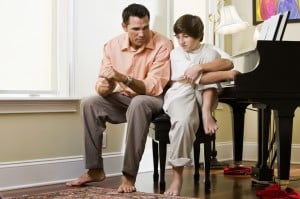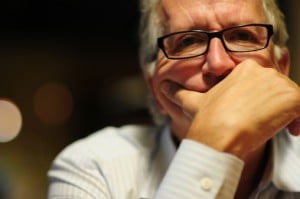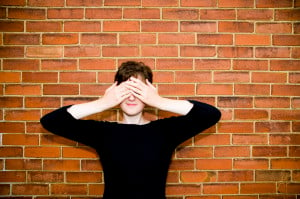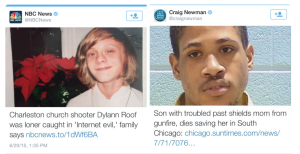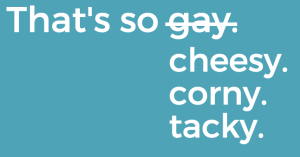SEAN GRANT: I grew up knowing that I was gay my whole life.
REMIE CALALANG: There are lots of things I really enjoy, love about being a Filipina and the Philippine culture. But coming out as a lesbian I think is really challenging when there is only one way to be in that narrative.
NANCY HAQUE: In high school, I was in the drama club and we were very—we would have long talks and talk about how probably everyone is a little bit bisexual.
JOHN JOO: Ultimately I think I had to come out because I couldn’t stand it. I felt like I just couldn’t be a whole person.
KEVIN GRANT: I think I had a sense that Sean might be gay, but I wasn’t going to ask him about that kind of thing.
SEAN: It’s like if you ignored the fact that I was gay or was straight—like you didn’t want to take the time to even get to know if I was or not.
KEVIN: I was kind of waiting to see if you wanted to tell me.
SEAN: Yeah.
KEVIN: And you were kind of waiting for me to ask you, and so we just never talked about it.
SEAN: Yeah.
JOHN: I decided to come out to my family first in high school.
HELEN JOO (speaking Korean): I still do not want to accept this now. I really don’t want to accept this. I have to choose because when I think about it as a parent, if I don’t accept my child, then what will happen to him? If I think about that even now, there is only one conclusion. I have to accept him.
JOHN: It’s the first time I heard how my mom felt since I came out. I can only imagine how hard it was for my mom. Being in a Korean Catholic community; it’s a small community. Probably why I stopped going to church was because I thought, “If I’m not there, then people won’t ask about us.”
If my parents didn’t accept me, I may not have been the best person that I want to be and that I hope to become. Being able to live in this house and get the Korean food that my mom makes and the love that she gives me…
HELEN (speaking Korean): Among my three kids, he is the most selfless person, caring and warm-hearted. What I’m the most proud of is, anywhere I go, people will ask me, “Is John your son? He is such a good person.” That makes me really happy. This is the son that I gave birth to, this is really him. That makes me happy.
JOHN: What I love about my mom is that she has the most solid foundation around how she wants to live her life and our family’s life. It’s what moves me and inspires me and keeps me happy and centered.
REMIE: The process for my mom, I think, was challenging because me being a lesbian contradicted her cultural values, and then also she’s a devout Catholic. She just asked, “Why would you choose something that would make life harder.” When she said that, I realized that her reaction had less to do with me being a lesbian as it was with her general worries and concerns as a parent.
NANCY: I’m not out to my parents. I’m not out to my mom or my dad. And in some ways I think it’s almost typical in South Asian families. It’s like, it’s hard to come out as straight, let alone as queer.
It didn’t feel that hard until I got into a really serious relationship. Now it does feel hard not to take my partner home.
I feel like I could tell my mom, but probably not while my dad’s still alive. And because he is older, I don’t know how long I have him and so I just sort of need to keep my relationship with him as it is right now.
SEAN: Growing up, I would have liked to hear her or Kevin talking more about issues that were strong to him. Like equal rights or LGBT rights. I really didn’t know.
KEVIN: It made me realize then and there that it’s not good enough to be supportive of these things in general, or supportive of people in general. We tend to think that the absence of hostility or the absence of negativity is supportive and positive, but that’s not true. That’s nothing; that’s neutral.
Sean has helped me realize that we, straight folk, need to take the responsibility to show that we’re supportive. So that gay people and transgender people can feel like they can come out and know that they’re going to be supported by us and welcomed.
JOHN: To families out there, I would say, I think the most important thing is sticking by each other and not letting go, especially when it’s the hardest.
HELEN (speaking Korean): You have to accept your children. If you don’t do that, these kids have no place to go. They cannot live. I truly believe that family is the most important. And if family doesn’t embrace them, these kids will have no place to go. I would ask you to please accept them with love.
KEVIN: What I would say to straight siblings—just know that nothing has really changed. This is the same person who you’ve always known and you’ve always loved.
REMIE: Having kids certainly makes you very aware of the bigger picture. Family is important, and it’s a strong cultural value and I think, really, now that I can look back, I see that that value trumped all the other values about who I was supposed to be. And that my mom’s belief in love of family really is what I think eventually dismantled whatever stereotypes or homophobia that she had.
NANCY: Everyone should have that. Everyone should have that level of people who love you forever, no matter what.






